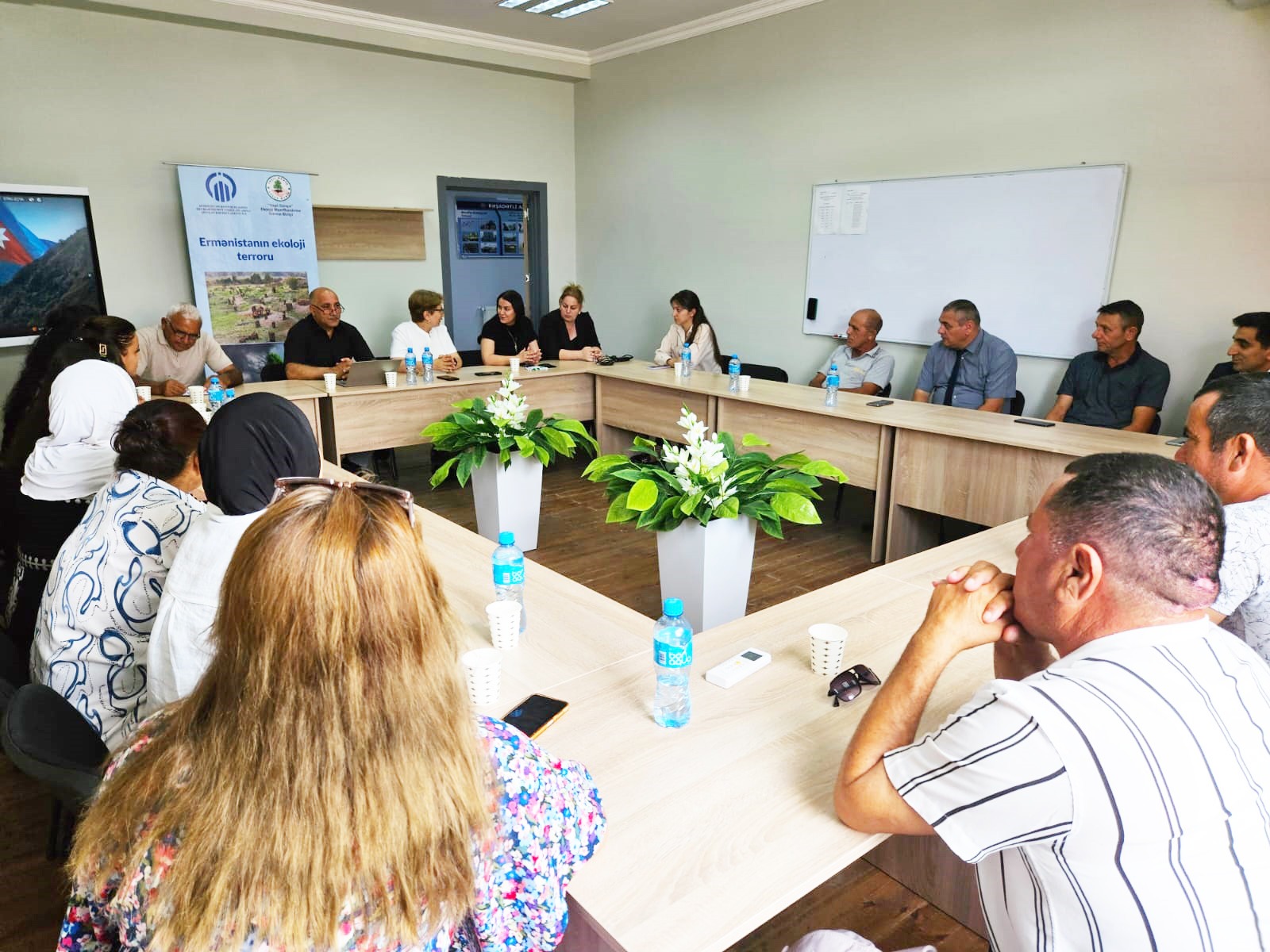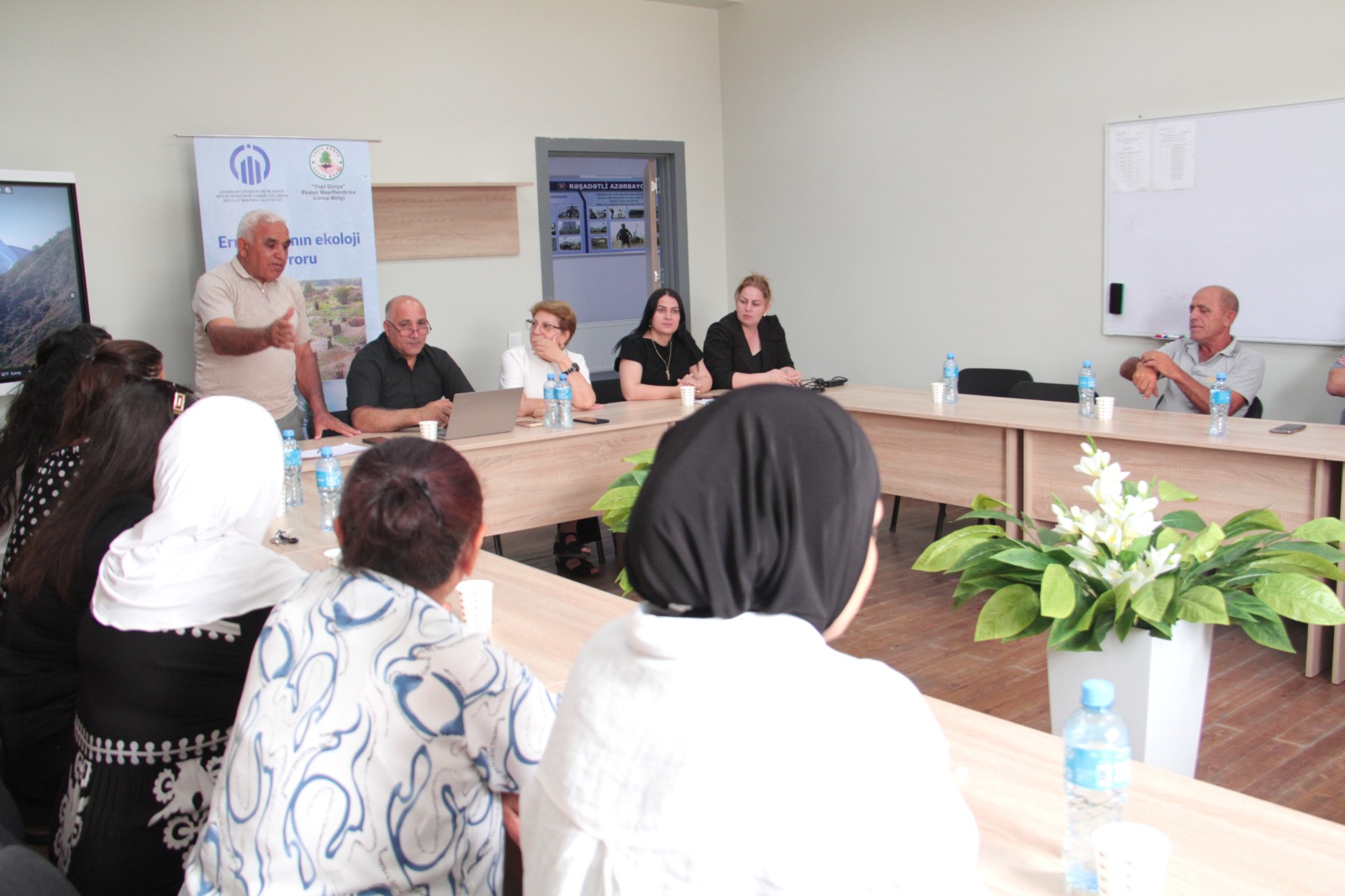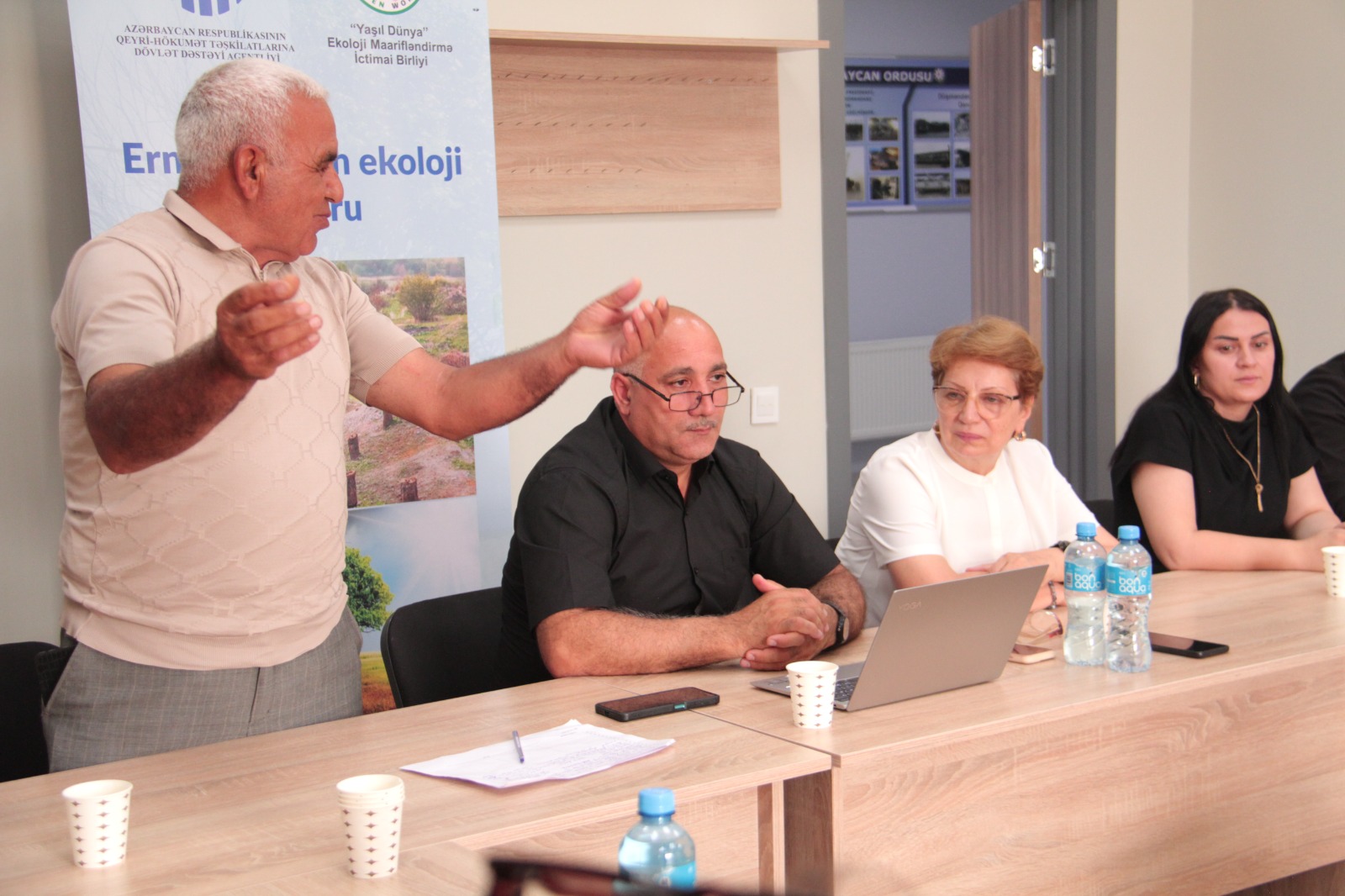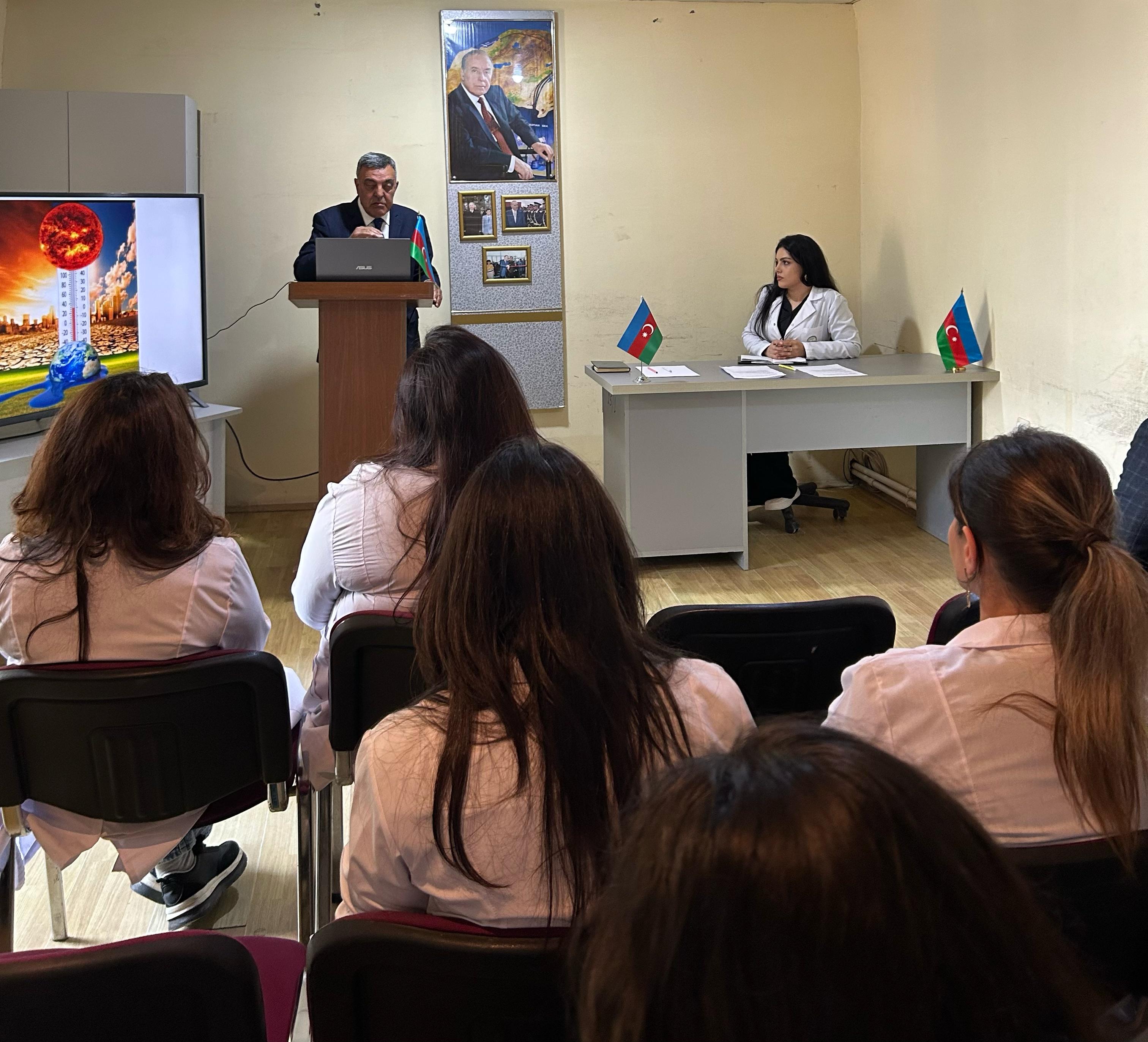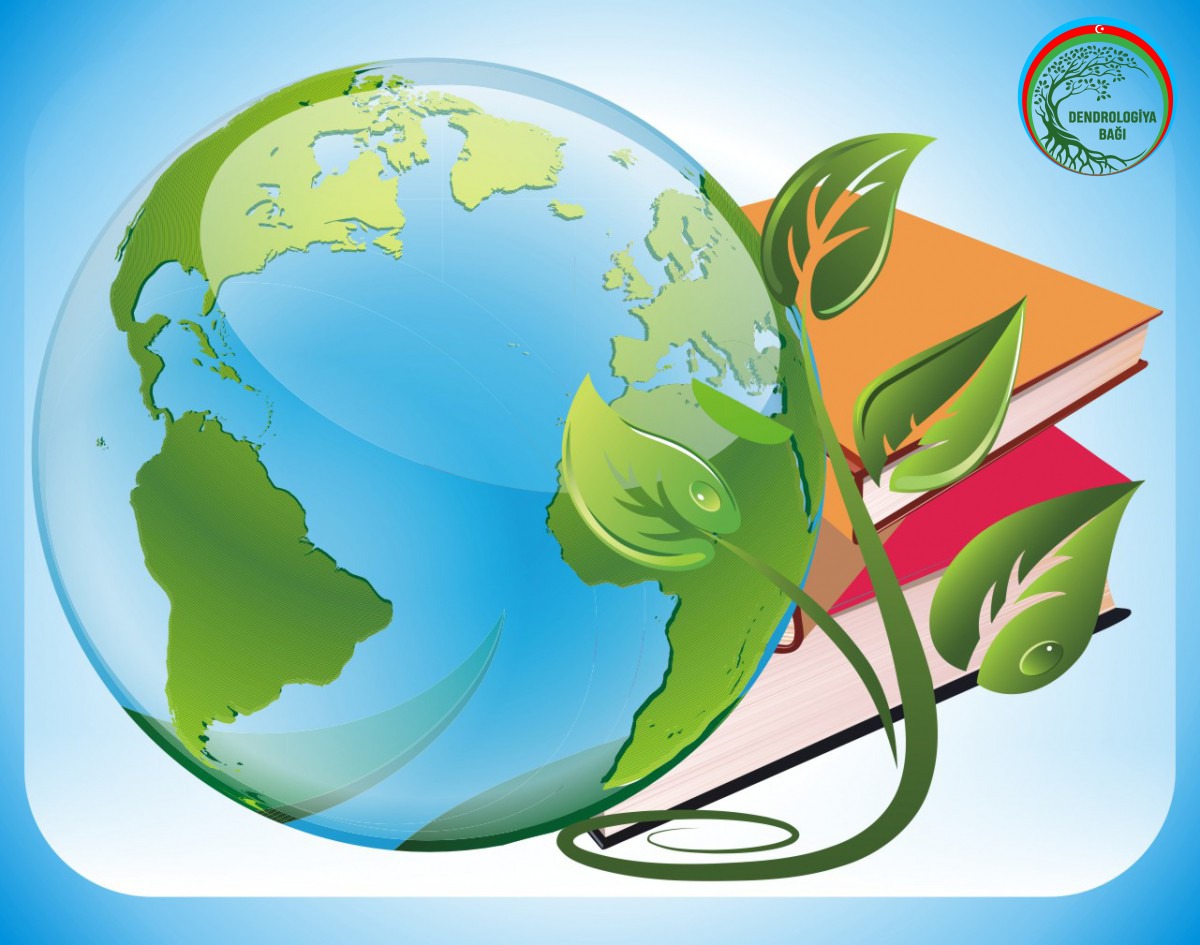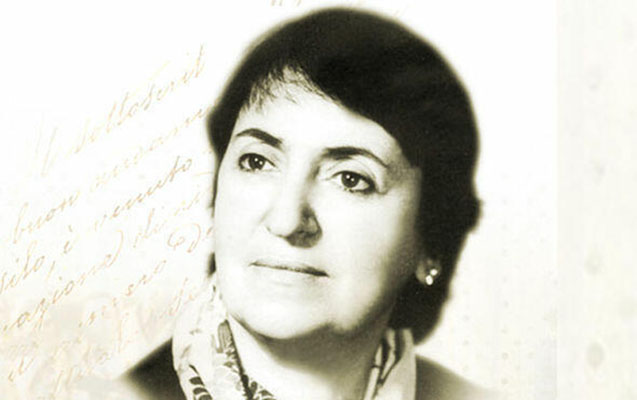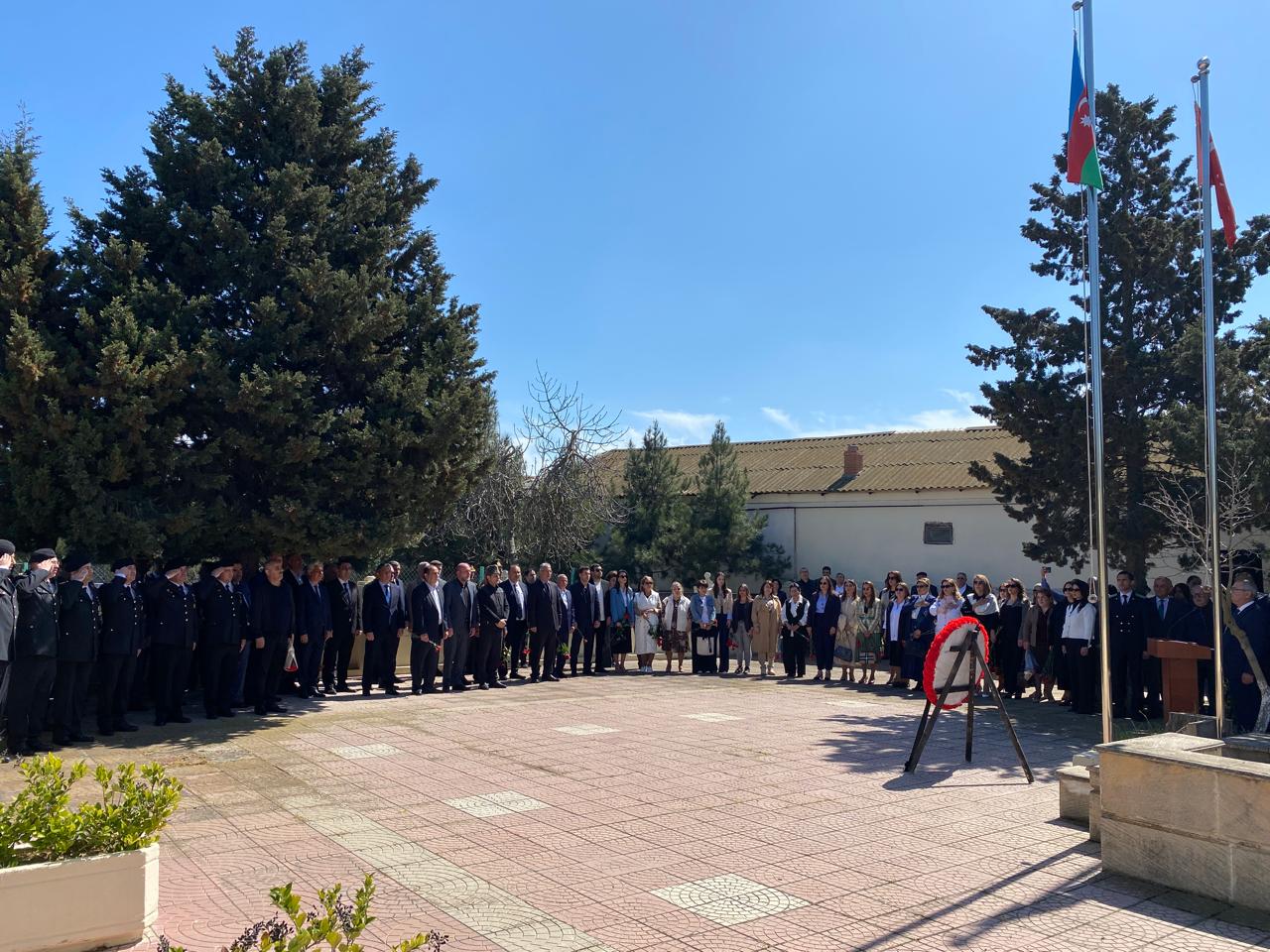Environmental terrorism of Armenia against Azerbaijan was discussed in Aghali
With the financial support of the State Support Agency for Non-Governmental Organizations of the Republic of Azerbaijan, on 12 August, the "Green World" Environmental Awareness Public Union (EAPU) held a public discussion called "Ecological disaster in Okhchuchay" in Zangilan district.
Representatives of Zangilan district community, teachers, lecturers, social activists, volunteer nature lovers participated in the public discussion.
Elman Jafarli, an employee of "Dendrology Garden" PLE, chairman of "Green World" EAPU, convey the project and said that in the last 30 years since the beginning of the Karabakh conflict, Armenia has spontaneously exploited the natural resources of our Republic, including our occupied territories, and as a result ecological balance violated: "In the last 30 years, forests rich in valuable trees have been cut down in Zangilan, Jabrayil, Agdam.
If the total forest area of Aghdam region was about 4,743 hectares, about 26 percent of it was destroyed, more than 100 hectares of pistachio forests were attacked by vandals. About 30 hectares of agroforest with a history of 100 years was destroyed in Kamalli village of Lachin region.
Nowadays, there are only 1-2 trees left. 90 percent of the shrubs and grasses in the forests of Jabrayil district have been completely destroyed, and a semi-desert situation has arisen in the territory. In general, during the occupation period, 11.6% in Khankendi, more than 17% in Khojavand, 23% in Kalbajar, 36% in Lachin, 36% in Shusha, 6% in Tartar, 46% in Zangilan, close to 2% in Fuzuli , 50% of the forest area in Gubadli was destroyed."
E.Jafarli emphasized that Okhchuchay is exposed to more environmental pollution: "Okhchuchay's basin is polluted by toxic wastes of Gajaran copper-molybdenum plant and Gafan copper ore refining complex in the territory of Armenia. Analyzes of 158 water samples and 180 bottom sediment samples taken from the transboundary rivers since December 2020 showed that the pollutants are higher than the norm.
Irada Hasanova, the chairman of "Sama and Eco" Social Economic Development Assistance Public Union, said in her speech that Armenia's ecological terror against transboundary rivers has intensified since 2000.
"That year, the increase in the demand for copper, gold and other precious metals in the world market laid the foundation for the development of the mining industry in Armenia.
Armenia prioritizes its economic interests and has increased investment in the progress of the mining industry, which threatens the ecosystem of the region. By polluting transboundary rivers, Armenia is hitting the ecosystem of the South Caucasus as a whole and is doing it in violation of international conventions," he said.
I.Hasanova said that by committing these environmental crimes, Armenia completely opposes the UN's Sustainable Development Goals, which recognize a clean, healthy and sustainable environment as a basic human right:
"In addition, the construction of any mining industry enterprise on the border without the consent of the Azerbaijani side is a gross violation of the Espo Convention, adopted in 1991, which provides for the assessment of environmental impact in transboundary contexts."
